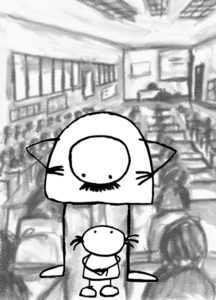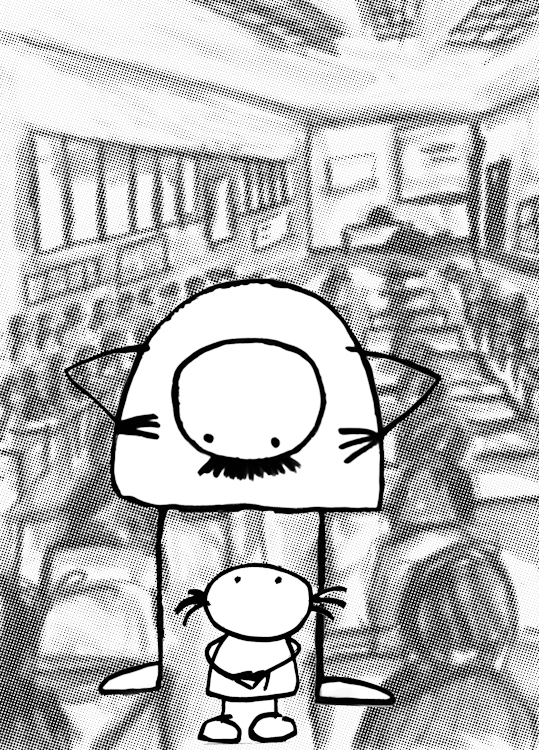
It happened many years ago.
I didn’t realize it at the time; it didn’t look like theft.
I was on my prep course before university. Our history of philosophy teacher asked us at the beginning of the year:
«Would you like to study the subject in its entirety… or would you prefer to focus on the first part instead and choose that option at the test?»
The second option looked like a favour: It would save us some studying. It would improve our chances at the test.
Stupidly, we agreed.
Stupidly, we thought that passing a test was more important than learning about the history of philosophy.
I could kick myself for agreeing to it.
That year we missed out on learning about Marx, Kant, Nietzsche and many others. We missed on opportunities to discuss religion, values, moral dilemmas, society, politics and exploring our place in the world when our personalities were still developing and the world looked confusing (Should US intervene in the Iran-Iraq war? Is war ever justifiable?).
Howe, writing about social work, reflects on the perversity of governments and organisations «setting targets and measuring performance» and quotes Skidelsky (2014:7) «A measure is a dangerous tool for it tends to take the place of whatever it measures”. (Howe p.41)
For my class the goal of learning about history of philosophy was replaced by the goal of passing a test.
How absurd!
…
I’ve been on a reading spell for the last few months. I wanted to learn more about feminism after the end of my course.
I’ve read several books on topics connected with feminism: books about politics, philosophy, sociology, inequality, slavery, abolitionism as well as some fiction and biographies of historical figures.
I will be sharing some of the ideas I’ve been reading about. I’m not in a hurry, there’s much still to read, much to think about yet.
But I’ve made a start.
I’ve been wondering how it was possible that I hadn’t heard about those perspectives before. How is it possible, in this digital age, to go through life not knowing more about those people and those movements? Why was I so oblivious to issues that I find so meaningful today?
I could make some comparisons between the situation I lived years ago and more recent times:
First, I think I’ve been guilty of not taking an interest in issues that looked controversial. I didn’t want to read things that challenged my perspective about society and the people around me. (Then I trusted my teacher and didn’t want to question his authority)
Secondly, I’ve been guilty of busyness too, of allowing my life choices (work and social life) use too much of my time. I didn’t want to have to think about deep issues, politics, problems I thought beyond my control. For years I felt my spare time from work or my studies was too precious to spend on «serious» issues. Leisure and hobbies were OK, but not anything that implied much thinking effort. (When I was a student I was expected to spend my time doing useful things)
And, lastly, I think some of the blame belongs to society (Then I wanted to be like other people my age)
I blame a society that makes us aspire to become people of influence, along with the journalists, academics, writers, teachers, bankers, politicians, PR companies and corporations that contribute to a system that keeps most people ignorant about serious issues: printed and digital media who create and publish stories to suit their advertisers’ interests; social media often filled with banality and manipulating us for their own gains; governments and elitist institutions that foster social and financial inequality under the guise of choice.
…
I was moved reading Sarah and Angelina Grimke’s writings from around 1837, speaking out against slaveholders and their attempts to keep slaves ignorant.
Their quote about the intentions of American slaveholders seems frighteningly current: «If we could extinguish the capacity to see the light, our work would be completed: they would be on a level with the beasts of the field, and we should be safe» (Grimke S. and Grimke A. 2014: p.189).
Do you want to learn or do you want to do what others do?
Are we all being robbed?
«The status quo and mainstream ideas about how the world works must be maintained by those who benefit most from it, and to do that, voices that speak of actual reality, or a different future, must be silenced.” (Hurley p.14)
References:
The geek feminist revolution. Hurley K. 2016.
The compleat social worker. Howe, D. 2014
On slavery and abolitionism. Grimke, S. and Grimke, A. 2014
Other feminist books
Thanks for reading this.
